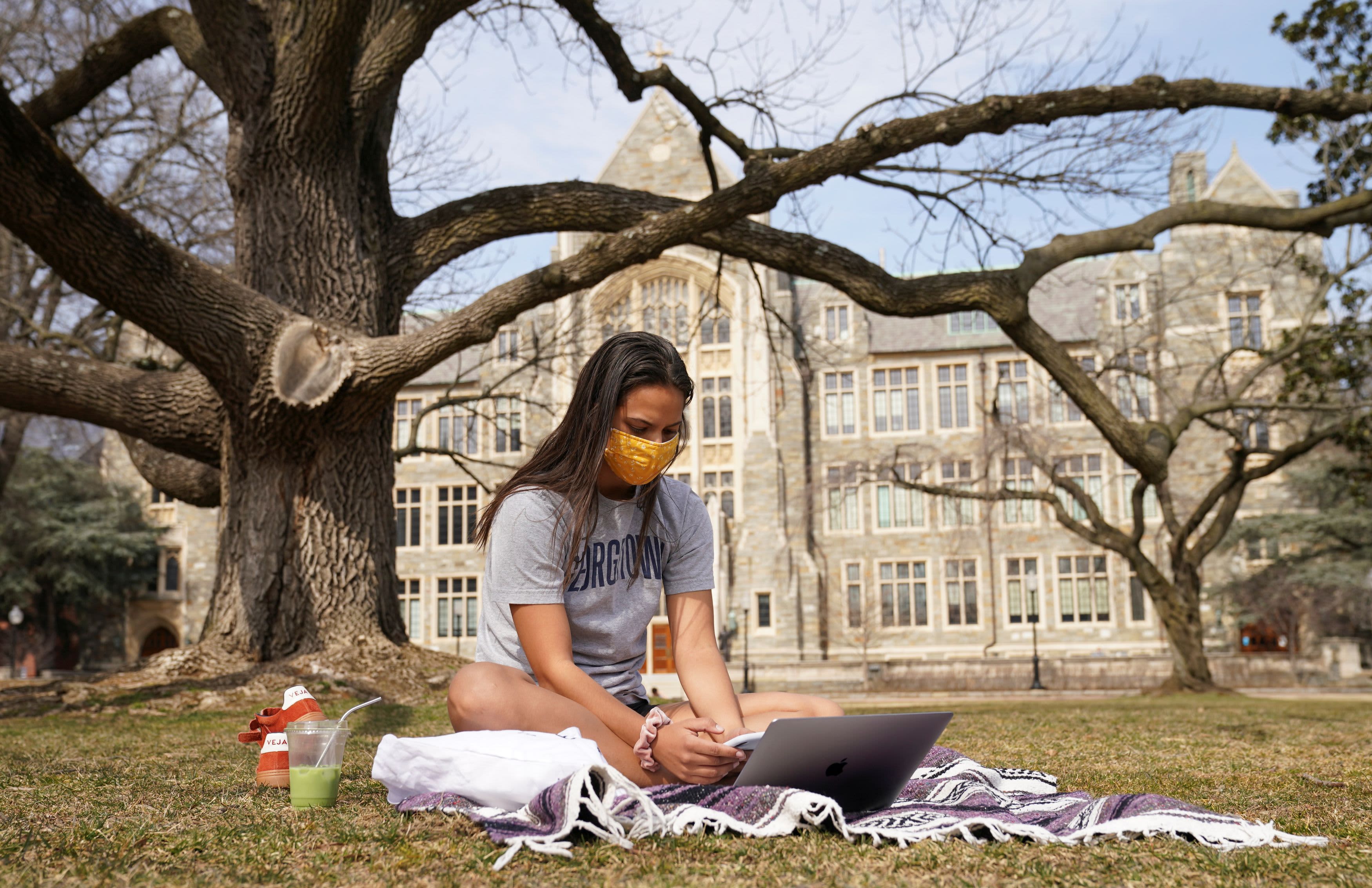College graduates are moving into post-grad life and facing the real-world financial challenges of adulthood.
Right now, college graduates are moving into post-grad life and facing the real-world financial challenges of adulthood.
So, what's at stake for them in 2021?
Watch NBC 5 free wherever you are
“The good thing is that things are opening up, opportunities are opening up. The economy is absolutely expanding. There’s going to be job growth and opportunities. So this could be a really great time to be entering the job market,” said Bobbi Rebell, a certified financial planner for consumer tech company Tally.
The Class of 2021 has an advantage over the previous class. Employers project hiring 7.2% more new college graduates this year than last year, according to a report from the National Association of Colleges and Employers.
Get top local stories delivered to you every morning with NBC DFW's News Headlines newsletter.
Still, CNBC reports that 45% of those in the class of 2020 is still looking for work. Younger also lag behind when it comes to unemployment. The overall unemployment rate for March was 6%, but for 20- to 24-year olds, the unemployment was more than 10%.
Student debt is also entering record-breaking territory. According to Forbes, it's now at a record $1.7 trillion this year. Around 45 million borrowers owe that much money.
Texas alone accounts for $113 billion of that debt, the second highest in the country.
President Joe Biden has paused federal student loan payments through the end of September as Congress and the White House continue the debate over student loan cancellation.

Typically, most loans give students a 6-month grace period after graduation before they have to start making payments.
In the meantime, Rebell said students can plan ahead to set themselves up for financial success. She said students need to plan now to prioritize paying off the highest interest debt and schedule automatic payments for loans, credit cards and other bills that will start stacking up this year.
Next Steps for Graduates
“Understand how much you’re paying in terms of each bucket of debt and make sure that you prioritize accordingly,” she said. “Student debt, of course, should be a priority, but maybe not the ultimate priority because the interest rate that you pay on student debt is often much lower than credit card debt.”
After that, students can calculate their actual living expenses, in order of importance. Rebell said it should look something like this: rent, food, insurance, cellphone and WiFi service, among other expenses.
Rebell added that while paying off student debt is important, don’t let it take away from other obligations, like contributing to a retirement plan or building an emergency savings account.
“Of course make sure you’re paying the appropriate amount for your student debt, but don’t get so caught up in it that you, for example, don’t contribute to a 401(k). Especially if the company that you’re working for has a matching program,” she explained. “It has to be a balance because time is on your side when it comes to investing and I don’t want anyone to spend so much of their financial resources paying down debt that they neglect to not only invest but also have that cash cushion.”
Next Steps for Graduates
Rebell said students also need to ask themselves if it’s the best financial move to live on their own, get roommates, or move back home to save money?
It’s also important to keep track of how much money you're spending each month and on what so you’re not losing control. Rebell said smartphone apps are your friend.
“I personally can’t stand budgeting. But, here’s the cheat: everything happens digitally now so you can see what’s going on. If it works for you to write it down, and it does for a lot of people, write it down,” she said. “Wherever you’re making your payments, try to keep them in the same place because almost every system imaginable will have a setup where you can sort it for you. And you’ll see your money. That will motivate you going forward because if you see what you’re spending so much money on, you’ll get motivated to make those changes.”
And because of the pandemic, it's important for students to start working to build up a savings cushion in case of emergencies.
“If there is one thing we’ve learned in the pandemic, it is the importance of enjoying life in the present. But if there is a second thing we’ve learned, it’s that we need that cash cushion to be really cushy because financial circumstances—like being employed—can change on a moment’s notice,” said Rebell.
Finally, she said students need to ask as many questions as possible.
“Make sure you’re setting things up correctly. Don’t be shy if you don’t feel like you know something. It’s OK to ask questions,” she said. “Make sure you’re educating yourself. You went to college or high school and you got an education. But you probably didn’t get an education into the everyday financial decisions that you are going to be making. So instead of saying, ‘I should’ve been taught, I wish I could’ve been taught’ – go teach yourself."





